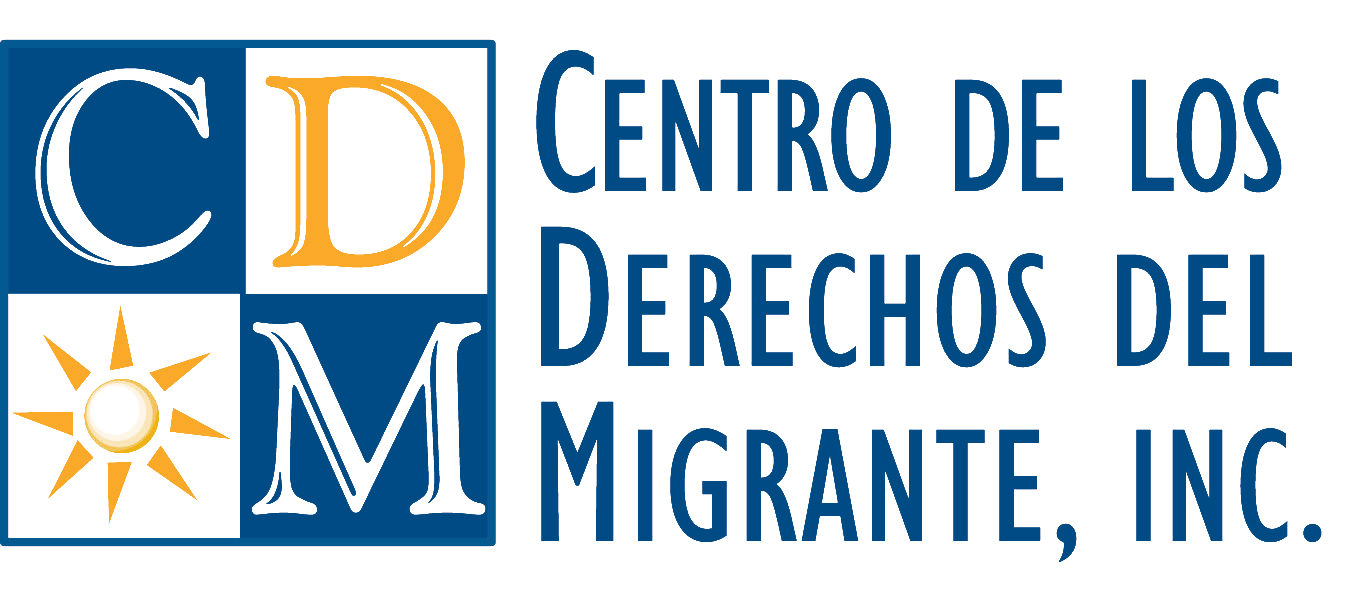CDM offers a robust, year-round internship program to law students and others interested in gaining hands-on experience with our work. Learn how to apply, and meet some of our former volunteers!
Based in our Mexico City office, interns have the opportunity to gain an immersive experience in various aspects of our work, whether legal and policy, outreach and education, or development and communications. Due to the demands of the program, we request that interns commit to spending 10 weeks, full-time, and on-site. Part-time, short-term, or home-based volunteerships may be considered in exceptional circumstances, except during our Summer Law Clerk program.
Summer: Every summer, CDM welcomes 4-6 interns into our summer cohort for a period of 10 weeks, usually from late May through early August. While geared especially toward 1L and 2L students, applicants with diverse academic and professional backgrounds may also apply. As our summer program is especially competitive, we encourage interested applicants to apply as early as possible – ideally in late fall or early winter. Interviews typically take place between December and January, with decisions mailed in February and March.
Year-round, law clerk responsibilities will vary, but may include:
- Conduct extensive intake and follow-up interviews with clients and potential clients;
- Conduct legal research, represent clients, and support CDM’s ongoing federal and/or state litigation under the supervision of CDM’s legal director;
- Participate in CDM´s policy campaigns under the supervision of CDM’s policy director;
- Participate in outreach and conduct “know-your-rights” trainings for migrants in their home communities before they leave for the U.S.;
- Collaborate with partner organizations in Mexico and the U.S.
- Requirements: All of our internship and fellowship programs require that applicants can demonstrate advanced proficiency in both English and Spanish. As CDM is unable to provide interns with compensation or amenities, we encourage those who apply to seek outside funding and/or course credit for their time.
To apply for an internship, please email info@cdmigrante.org with a letter of interest, resume or CV, and a list of three references in either Spanish or English, whichever is preferred. Although we accept applications on a rolling basis, we strongly encourage applicants to submit materials by the following deadlines:
Summer internships (May-August): Submit by December 31
Fall internships (September-December): Submit by April 31
Winter internships (January – April): Submit by August 31
Please note that due to high demand and limited capacity, we are unable to accommodate all who apply (although we wish we could!).
CDM is an equal opportunity employer and welcomes applications from people with diverse backgrounds and does not discriminate on the basis of race, color, national origin, sex, religion, age, disability, sexual orientation, or gender identity.
Julie Pittman
Law student at the University of California, Berkeley
Law clerk, spring 2018
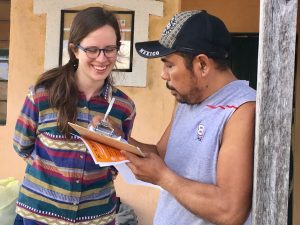
I’m very happy that I was able to contribute to a forthcoming report about J-1 Au Pair workers, because I’ve admired CDM’s publications for a long time. However, I’m especially proud that I’ve had the opportunity to do outreach to workers in Hidalgo, Nuevo Leon, and San Luis Potosi. At the end of the day, my work is inspired by the people I’ve met who are fighting for better opportunities to live and support their communities. The chance to connect with and learn from migrant workers will be one of the most important things that I take away from my time at CDM.
CDM was a great fit for many reasons. I’ve had to opportunity to work at the intersection of immigration and employment law for a long time, having worked with immigrant worker communities in North Carolina, California, and Alabama. However, working in CDM was a unique opportunity to learn more about sending communities while exploring a broad range of tactics: litigation, policy, community education, and research. I feel like my time with CDM has not only refined my sense of purpose but has inspired me to learn more about advocacy tools I had never considered before for myself.
I’ve never worked for a binational organization before so I expected to see a lot of challenges working across borders and time zones. However, I was not only impressed by how tightly knit the CDM team was. I was really blown away by how well connected CDM is in both Mexico and the US. Advocacy often works best with coalitions of partners so I was surprised and really impressed to see that CDM is part of strong advocacy communities across countries and cultures.
David Vines
Law student at Georgetown University
Law clerk, spring 2018
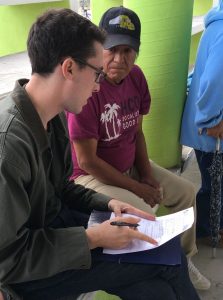 The opportunity to go on an outreach trip to Ciudad de Maíz in San Luis Potosí and spend time in a more rural Mexican community was unforgettable. I had a chance to not only observe but participate in several Spanish-language know-your-rights trainings with migrant workers and process intakes so CDM could help them address issues they had with employers in the United States.
The opportunity to go on an outreach trip to Ciudad de Maíz in San Luis Potosí and spend time in a more rural Mexican community was unforgettable. I had a chance to not only observe but participate in several Spanish-language know-your-rights trainings with migrant workers and process intakes so CDM could help them address issues they had with employers in the United States.
I am most proud of the work I did helping a worker in California appeal a decision by the Department of Labor that did not adequately compensate her for the more than $100,000 of wages stolen by her former employer. Working on a long-term project with a single client and helping her navigate a complex web of bureaucratic procedures was incredibly gratifying.
As a law student and Spanish language learner, the opportunity to work with Spanish-speaking clients on legal issues arising from labor disputes in the United States was invaluable. I eventually want to provide legal assistance and fight deportation cases on behalf of people who are incarcerated in ICE detention facilities, as well as fight alongside immigrant communities for the abolition of ICE altogether. To do this, experience doing Spanish-language legal assistance work will be absolutely necessary. I truly believe the opportunity provided by CDM is going to have a significant long-term impact and allow me to seek career opportunities that I otherwise would not have been able to pursue.
I was truly impressed by the geographic reach of the Comité and the depth of grassroots involvement that allows the organization to function so well. It is incredible that we can go to small towns and remote villages across the country and find people who are willing to help CDM organize a training and put us in contact with migrant workers, so we can assist them no matter where they are.
Norma Ventura
Law student at the University of California, Berkeley
Law clerk, summer 2017
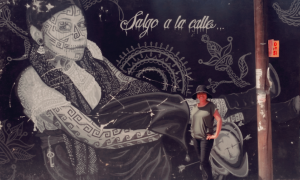 My favorite project was working on the analysis of the abuses occurring under the TN visa. Even though individuals hired under this visa are relatively highly educated, they are victims of abuses not too distinct from the abuses (such as wage theft, harassment, among others) that we see in the H-2 programs which typically employ non-professionals.
My favorite project was working on the analysis of the abuses occurring under the TN visa. Even though individuals hired under this visa are relatively highly educated, they are victims of abuses not too distinct from the abuses (such as wage theft, harassment, among others) that we see in the H-2 programs which typically employ non-professionals.
I am a migrant myself and I come from migrant farmworker parents from Oaxaca, Mexico. I grew up in California’s Central Valley working alongside my parents picking grapes and other crops. I am passionate about migrant rights because of the vast abuses that migrants endure while picking the food that feeds the the U.S. and other parts of the world.
The best part of CDM is that it has staff and offices located in Mexico. Having interned at the Oaxaca office, I was able to experience living in La Mixteca. Communities here are vibrant yet many are deeply impoverished which make them especially vulnerable to fraudulent job offers and abusive working conditions. It’s so important and beneficial for these communities to have easy access to offices with staff who speak their language and are also from the community.
Austin Gassen
Law student at the University of Pennsylvania
Law clerk, summer 2017
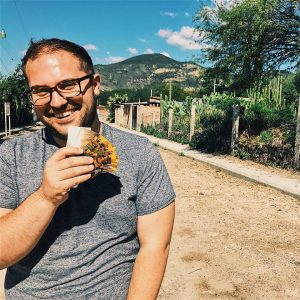 I’d have to say my favorite moment with CDM would have to be my outreach trip to Guanajuato. While it has been awesome to be on the front lines of some groundbreaking policy and advocacy work on behalf of migrantworkers in the United States, having the opportunity to meet migrant workers in their communities, hear their stories, and try to help them work through any legal issues they may have was truly an inspiring and impactful experience. More so than anything, migrant workers feel like they lack a voice, and having the opportunity to make them feel heard and that someone was fighting for them was extremely gratifying. I love that CDM, while fighting for global policy changes, never forgets the individuals they are fighting for.
I’d have to say my favorite moment with CDM would have to be my outreach trip to Guanajuato. While it has been awesome to be on the front lines of some groundbreaking policy and advocacy work on behalf of migrantworkers in the United States, having the opportunity to meet migrant workers in their communities, hear their stories, and try to help them work through any legal issues they may have was truly an inspiring and impactful experience. More so than anything, migrant workers feel like they lack a voice, and having the opportunity to make them feel heard and that someone was fighting for them was extremely gratifying. I love that CDM, while fighting for global policy changes, never forgets the individuals they are fighting for.
My interest in migrant workers’ rights is two fold. First, without gainful employment, it is almost impossible to accomplish any human rights end. At times we underestimate the power and necessity of work. To me, assuring access to paying jobs is the first step to securing sustainable development goals, establishing firm rule of law, and ensuring human dignity. Because of that, it is important to have a well-structured migration system to protect the ability to find work when it is not available in one’s community. Second, the United States government is responsible for migrant workers. These workers follow a legal path set out by the United States government to work in the United States and then suffer abuses while working. Instead of protecting these workers, the United States chooses to turn a blind eye. This failure is unacceptable, however, because migrantworkers are not citizens, they do not have a voice in the United States government. Working to give them that voice is one of the major reasons I am interested in migrant workers.
The best part of CDM is the personal touch that the organization brings to migrant worker advocacy. Through every project I’ve worked on this summer, I always felt that the workers were the focus. Workers aren’t statistics; they are real people with real struggles and stories. CDM conducts its mission with that in mind, and that mission doesn’t just end when the case does. CDM continues to support migrant workers and is invested in their well-being long after cases are over. More so than anything, CDM has worked to show migrant workers and communities that they have someone in their corner, that there is someone to listen to them and fight for their rights, someone to help provide them the tools and the training to advocate for themselves. It has been incredible to watch and be a part of the CDM team.
Sara Appellof
Law student at Suffolk University
Law clerk, summer 2017
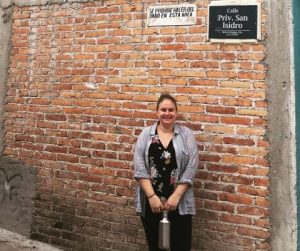
My favorite experience so far was traveling to Guanajuato and meeting with members of the communities in that state. It was a pleasure hearing first-hand migrant experiences and being able to answer questions posed by workers, their families, and their friends.
I have been interested in migration for a long time. As the great granddaughter of first generation immigrants to the US, I grew up hearing stories of how my family struggled along the way. While they were afforded a great opportunity by being allowed into the United States from Europe through Ellis Island, I became more and more aware that not everyone has that same opportunity. With the increased anti-immigrant rhetoric in the United States, I knew I had to take advantage of my ability to help others have the opportunities that my family had not that long ago.
The best part about working at CDM is the passion everyone has for the work we are doing. Every case feels personal, because it is. This passion brings us closer together as coworkers and closer to the communities we aim to serve, tirelessly answering phones, researching cases, and producing reports.
